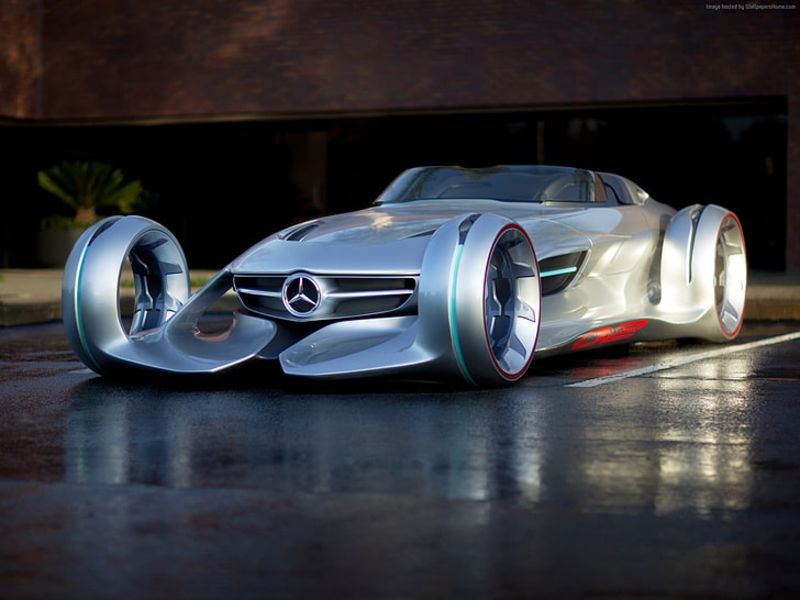Mercedes had announced sometime last year in 2019, of their partnership and interest in using Blockchain technology to be used in supply chains. This is certainly great news but for a while, nothing came out from the German manufacturer on the status of the project. But then, just a few days ago, Mercedes announced how they are planning to use blockchain to track carbon emissions.
Luxury automobile brand Mercedes-Benz has set itself an ambitious task to launch a carbon-neutral new passenger car fleet in less than 20 years. As part of this initiative, the vehicle manufacturer has begun by looking at transparency on CO2 emissions within the cobalt supply chain.
Cobalt is an important facet in car manufacturing, but it has also become a hotbed for vehicle manufacturers who are not averse to utilizing the power of blockchain technology to track and trace this vital mineral. First, BMW stated it would be leveraging blockchain technology to help source ethical cobalt, and now Mercedes will hope to use similar technology to monitor and be transparent with, its Co2 emissions.
Through the use of blockchain, the company will track the emissions of climate-relevant gases as well as the amount of secondary material along the complex supply chains of battery cell manufacturers.
The aim to create a carbon-neutral fleet of cars goes beyond simply creating electric cars as Mercedes is looking for the creation and manufacturing of its parts, and the batteries, to also be a carbon-neutral task. This can only be achieved if the emissions from the manufacturing are tracked, and made transparent. This is where the Blockchain pilot comes in.
Blockchain
In general, the automobile sector has been one of the bigger industries to look into the potential of blockchain technology across its entire arena. From manufacturing supply chain to rewards programs, there is a lot of competition driving different companies to leverage this technology.
As mentioned, BMW is using the tech for cobalt tracing, as are Ford, while Frankfurt bank and financial services firm Commerzbank tested blockchain-based machine to machine payments with trucks produced by the firm behind the Mercedes-Benz brand, Daimler.
GM has also been pushing the use of blockchain technology with a patent for a blockchain-powered solution to manage data from autonomous vehicles.
The Future
It is thus not too surprising to see that a company like Mercedes, which is setting its sights on an ambitious, but green project, is looking to the future of sustainable vehicles with the help of a futuristic technology like blockchain.
First, the focus will be on cobalt, which enters the supply chain from recycling facilities. A blockchain-based system maps the production flow of the materials as well as the associated CO2 emissions. In the long term, Mercedes-Benz is pursuing the goal of a circular economy and is working to close material cycles.
For this purpose, the mapping of the material flow also records the amount of recycled material in the supply chain. Furthermore, the network also displays whether Daimler’s sustainability requirements in terms of working conditions, human rights, environmental protection, safety, business ethics and compliance are passed on to all companies involved.
Daimler calls on its direct suppliers to comply with these standards and requirements and also carry the provisions into upstream value chains and to monitor their compliance.
With the pilot project, Mercedes-Benz is driving transparency in the supply chain beyond the direct contractual partners.
“With Ambition2039, Mercedes-Benz Cars has set itself high goals. We can only get there in close cooperation with our suppliers,” explained Markus Schäfer, Member of the Board of Management of Daimler AG and Mercedes-Benz AG
“The key is transparency: It is our aspiration to make all processes transparent and traceable. We are the first manufacturer to use blockchain technology to map CO2 emissions in the global battery cell supply chain. In doing so, we are laying the cornerstone for effective improvements – for the environment and for our businesses”.
Content was curated from forbes.com
- Ooki DAO Seeks Legal Defence against CFTC Drawing on Community Support - September 30, 2022
- MetaMask’s New Beta Portfolio dApp to Provide All-In-One Access to Cryptos, NFTs - September 30, 2022
- Bitcoin’s Bullish Seasonality Muddled by Continued Slide in ‘USD Liquidity Index’ - September 30, 2022

